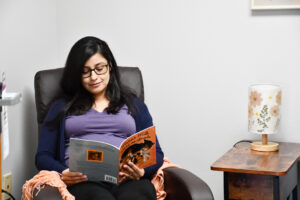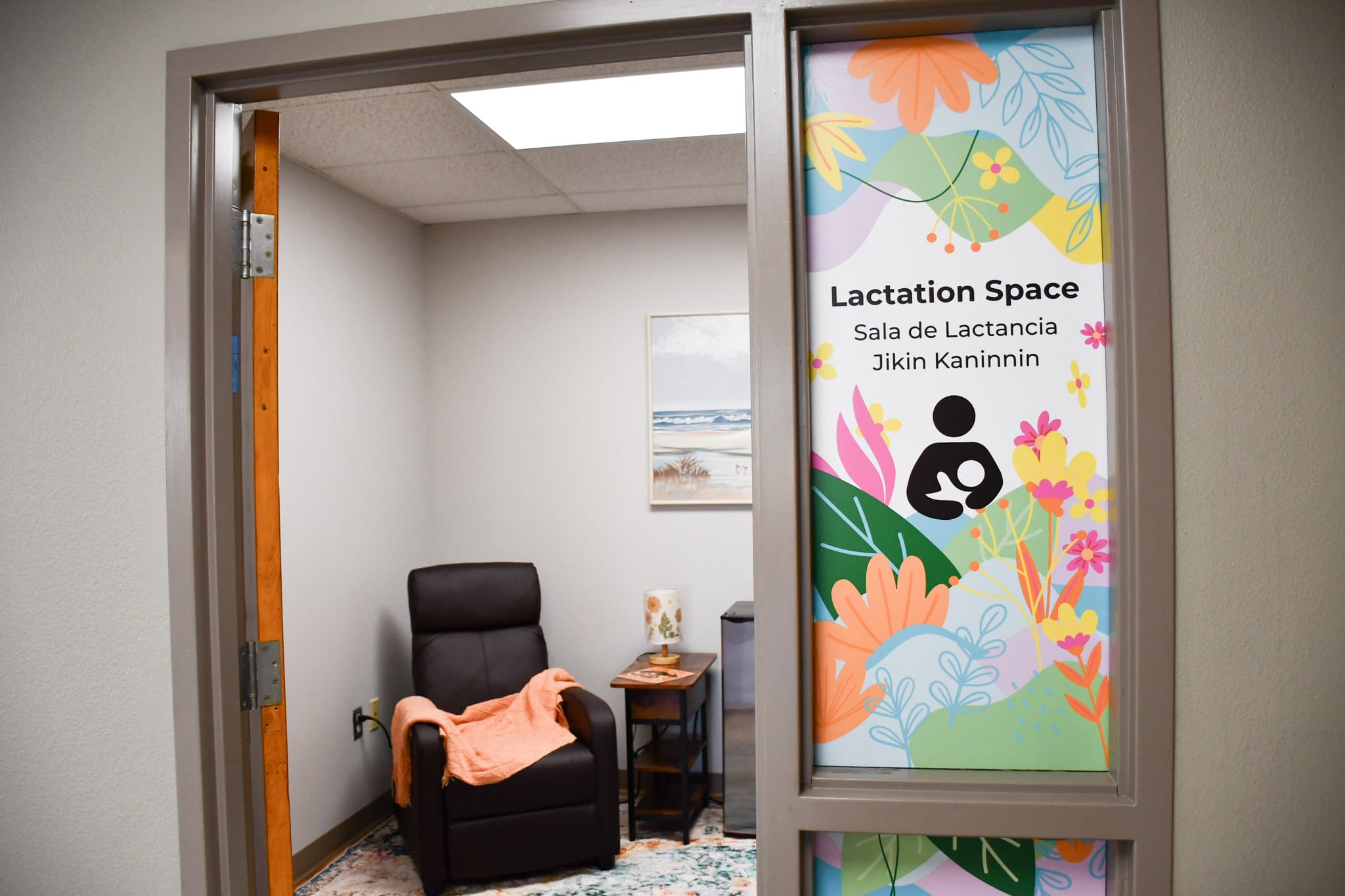UAMS Partners with Local Nonprofit to Provide Safe Space for Breastfeeding Mothers
| In collaboration with the University of Arkansas for Medical Sciences (UAMS) Institute for Community Health Innovation, the Center for Nonprofits at St. Mary’s in Rogers recently installed a lactation space for nursing mothers to comfortably breastfeed or express breastmilk.
According to the National Institutes of Health, many Hispanic women living in the U.S. may feel embarrassed or ashamed about breastfeeding in public. Coupled with the pressures of returning to work and other cultural barriers, many Hispanic moms choose to use formula to feed their babies rather than continue breastfeeding.
In Rogers, where more than a third of the population is comprised of Latino racial groups, the Institute for Community Health Innovation and the Center for Nonprofits at St. Mary’s collaborated to provide a safe space for breastfeeding moms at a place that provides resources to many Latino families in the area.
“Hispanic moms typically feel shy or uncomfortable breastfeeding in public,” said Marisela Sandoval, a community health worker at the UAMS Institute for Community Health Innovation. “Including a private lactation space where many Hispanic moms and families frequent can help to reduce the stigma around breastfeeding in public and allow moms to feel more comfortable nursing their babies outside of the home.”
Breastmilk is a valuable source of nutrition for babies as it contains vital nutrients that help their digestion system form and protect them from certain infections. The World Health Organization recommends exclusive breastfeeding — meaning that a baby receives only breast milk — during the first six months of a baby’s life to achieve optimal growth, development and health.
Breastfeeding also offers several benefits for mom and baby, including a lower risk of Type 2 diabetes. For the mother, breastfeeding can provide a closer bond with their baby and save time and money. Breastfed babies have a reduced risk of asthma, childhood obesity, ear infections and sudden infant death syndrome (SIDS).
In addition to supporting healthy breastfeeding habits, UAMS is working with community organizations to support families by deploying mobile prenatal care and expanding doula services across the state to fill gaps in maternal and child health. The institute’s latest initiative aims to provide contraception services and reproductive health education to women living in rural parts of Arkansas. Learn more at communityhealth.uams.edu.
